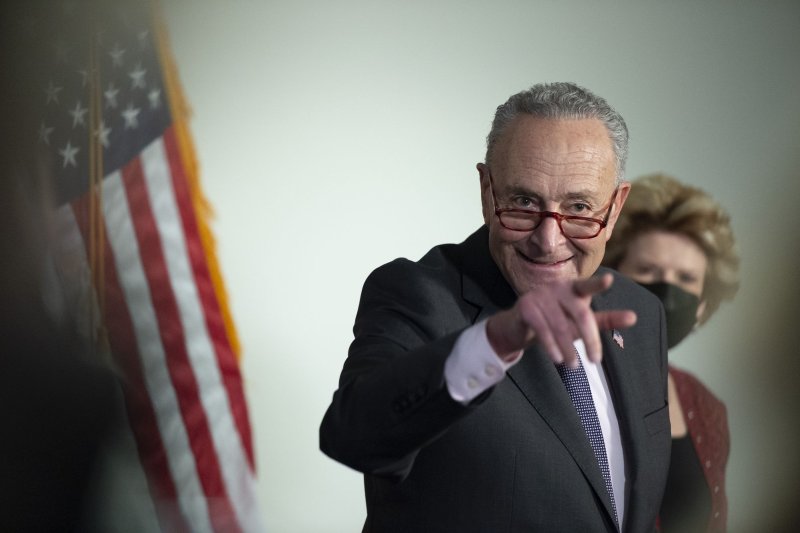By UPI Staff

Officials said the unidentified security guard drew a pair of eyes onto two human figures in the painting, which is valued at more than $1 million.
File Photo by Kevin Dietsch/UPI | License Photo
Feb. 10 (UPI) -- A Russian security guard has been fired for defacing a valuable painting worth $1.3 million that was hanging in an art gallery -- apparently because he said he was "bored."
Authorities said the guard defiled the artwork by Russian painter Anna Leporskaya, titled "Three Figures" -- which depicts three faceless human figures with no facial detail.
Officials said the guard drew eyes on two of the figures with a ballpoint pen.
"His motives are still unknown but the administration believes it was some kind of a lapse in sanity," curator Anna Reshetkina said, according to The Guardian.
"Fortunately, the vandal drew with a pen without strong pressure, and therefore the relief of the strokes as a whole was not disturbed," Ivan Petrov wrote in the Art Newspaper. "The left figure also had a small crumble of the paint layer up to the underlying layer on the face."
The painting was created in the 1930s and was on display at the gallery as part of an abstract art exhibition. After the vandalism was found, it was returned to the State Tretyakov Gallery in Moscow about 850 miles away.
Experts said it would cost a few thousand dollars to restore the painting to its original form.
Authorities opened an investigation into the incident and the guard faces up to three months in jail and a fine.
Feb. 10 (UPI) -- A Russian security guard has been fired for defacing a valuable painting worth $1.3 million that was hanging in an art gallery -- apparently because he said he was "bored."
Authorities said the guard defiled the artwork by Russian painter Anna Leporskaya, titled "Three Figures" -- which depicts three faceless human figures with no facial detail.
Officials said the guard drew eyes on two of the figures with a ballpoint pen.
"His motives are still unknown but the administration believes it was some kind of a lapse in sanity," curator Anna Reshetkina said, according to The Guardian.
"Fortunately, the vandal drew with a pen without strong pressure, and therefore the relief of the strokes as a whole was not disturbed," Ivan Petrov wrote in the Art Newspaper. "The left figure also had a small crumble of the paint layer up to the underlying layer on the face."
The painting was created in the 1930s and was on display at the gallery as part of an abstract art exhibition. After the vandalism was found, it was returned to the State Tretyakov Gallery in Moscow about 850 miles away.
Experts said it would cost a few thousand dollars to restore the painting to its original form.
Authorities opened an investigation into the incident and the guard faces up to three months in jail and a fine.








